SUMMARY
This is AI generated summarization, which may have errors. For context, always refer to the full article.
![[OPINION] Resilient barangays and grassroots leadership](https://www.rappler.com/tachyon/2021/07/tl-barangay-relience-sq.jpg)
According to the 2019 Global Peace Index, the Philippines is the most susceptible country to hazards brought about by climate change, while the 2019 World Risk Index ranks it as the 9th riskiest country among 180. However, these statistics cannot capture the actual distress and devastation ingrained in the Filipino experience of surviving multiple disasters and calamities that afflict our country yearly. As with many wicked problems, this affects the poorest and most vulnerable sectors of our society. Aside from climate, we are also at risk from earthquakes, volcano eruptions, and similar events.
Barangays, by law, are the duty bearers in responding to emergency situations and are well-versed and trained in managing risks. However, the available processes and regulations that lead civil servants in terms of risk management do not necessarily enable them to deal effectively with managing complex uncertainty. While support services have been available for barangays from the public, private, and citizen sectors, it is clear that no one preempted the scale and continuing impact of an event like the COVID-19 pandemic. As this event continues to reshape the make-up of our societies, the barangay leaders and communities need new ways of working and learning in order to expand their arsenal of tools to effectively respond to current and future issues that will arise in their areas.
On the other side of the equation to resilient solutions are companies and thought leaders. These individuals and organizations have valuable knowledge and resources but may not be aware of the local contexts of barangays. It is also possible that they do not know what to prioritize due to the overwhelming number of needs surfaced by the pandemic. More platforms to connect them and their resources with grassroots leaders are urgently needed for relevant and effective partnerships.
This is why, in line with responding to these issues and July being National Disaster Resilience Month, Ashoka Philippines and Cebuana Lhuillier Foundation, Inc. is hosting Barangay Resilience Exchange (Rx), an interactive event on community-driven innovation for resilience. Designed to go beyond the one-way information download typical of forums, Barangay Rx actively connects barangay leaders and LGUs with potential enablers and supporters of community-driven innovation. It is a space open for all to share, connect, and provide access to much-needed support to scale barangay resilience and innovation. Visit www.barangayrx.com to learn more.
The opening ceremony happening this Friday, July 23 builds the foundation of the specific aims of the event. Jean-Henri Lhuillier, President & CEO of Cebuana Lhuillier and Cebuana Lhuillier Foundation, Inc. and Abi Mapua, Country Director of Ashoka Philippines, will welcome attendees to Barangay Resilience Exchange. The two leaders will bring up the well-known notion of “Filipino resilience” and challenge this narrative.
The perennial exposure of Filipinos to catastrophes has possibly desensitized us, creating a massive spirit of helplessness that the sticky problem and vicious system that perpetuates it could not be undone. George Bernard-Shaw wonderfully captures it: “Only fools repeat the same things over and over, expecting to obtain different results each time.”
Ashoka Philippines strongly believes that everyone is a changemaker. Each Filipino has the innate capacity to facilitate transformative change in themselves, their families, and their communities. It is for this exact reason that we have gathered tangible projects and lived experiences of everyday Filipinos who are going beyond just the facilitation of Absorptive Capacity or mere reacting and coping to tragedies, and instead are building proactive Adaptive and Transformative Capacities that aim to address problems at the root cause and fix broken systems. To counter the prevailing narrative of the Filipino Resilience Myth, Ashoka presents new and real narratives of everyday Filipinos who are thinking and framing our vulnerability challenges in novel ways and subsequently addressing it differently.
Resilience is not a stagnant state but a journey towards achieving transformative change – an environment wherein every person with their unique abilities is empowered to have the capacity to think differently and create long-lasting “common good” change for themselves and others. To move forward with the strong belief of Ashoka that everyone is a changemaker, we provide the space and community for every person to discover, surface, and more importantly practice these changemaking and transformative capacities and values. Barangay Rx is one of such platforms and communities, particularly focusing on raising champions and changemakers among those who otherwise would not have access to innovation and capacity development.
Vice President Leni Robredo and Quezon City Mayor Joy Belmonte will be delivering keynote addresses on building resilience on the national and local levels, respectively. To highlight more perspectives, Ashoka Fellow Kevin Lee, founder of A Single Drop for Safe Water and project manager of the Barangay Resilience and Innovation Through Empowerment (BRITE) program will discuss private and public partnerships towards resilience. From another part of the country, infectious disease specialist Dr. Bryan Albert Lim will talk about the community response in Cebu during the current pandemic.
Over three Friday mornings (9-11:30 am on July 23, 30, and August 6), Barangay Rx will also feature project exchanges where innovators will share their solutions, and clinics which are workshops that will provide free training and resources. These will ensure that knowledge and skills reach overlooked frontliners, our barangay leaders who often do not have access to professional development opportunities.
On July 23, two project exchanges from Base Bahay and Barangay Resilience and Innovation Through Empowerment (BRITE) will be featured. Base Bahay, through Hilti Foundation, is helping various organizations and local government units provide affordable but sturdy housing through their cement-frame bamboo building technology. The President and Chairperson of the Board of Trustees for Base Bahay, Maricen Jalandoni, will discuss the technology and the organization’s advocacy further.
BRITE is a platform where barangays can get and share support for their creative and innovative projects that empowers communities to become proactive and resilient in dealing with their challenges. Since its inception last year, BRITE has been rolled out in 21 barangays – 20 in Palawan and 1 in Marikina – where local leaders underwent various workshops to identify the pressing problems of their respective communities and to design solutions to address these. Representatives from BRITE will be discussing the benefits of their platform and how more barangays can be a part of it. By attending Barangay Rx, you will be able to directly connect with and ask presenters your burning questions.
Other project exchanges and clinics will be administered on July 30 and August 6 by Advancement for Rural Kids, Ashoka Philippines, AXA Philippines, Cebuana Lhuillier, Community Pantry PH, GIZ Philippines, Limitless Lab, PEKKA, and Philippine Disaster Resilience Foundation.
Whether you work for a barangay, an NGO, the national government, a private company or institution, or simply wish to support our local government units in any way, we hope you will be able to connect with our vibrant community! Register here.
If you share the view that we must equip our barangay leaders to be changemakers who are able to creatively adapt interventions for community issues, you are more than welcome at Barangay Resilience Exchange. We all need to work together to make every barangay across the country truly resilient! – Rappler.com
Tony La Viña is the Executive Director of Manila Observatory. He also teaches law and is former dean of the Ateneo School of Government.
Jose Luis Pablo is the Communications Manager of Ashoka Philippines.
Abi Mapua is Country Representative of Ashoka Philippines.
Add a comment
How does this make you feel?
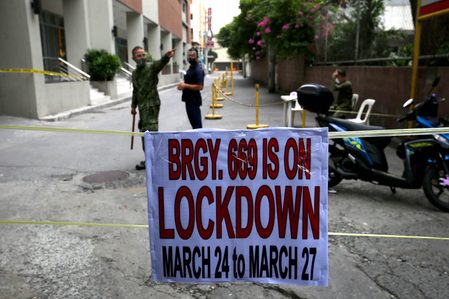
![[OPINION] On messiahs and mistakes: Choosing our next leader](https://www.rappler.com/tachyon/2021/06/TL-choosing-the-next-leader-1280.jpg?fit=449%2C449)
![[OPINION] We need changemakers more than ever](https://www.rappler.com/tachyon/2020/10/Ashoka-Fellows-illus-1.jpg?fit=449%2C449)
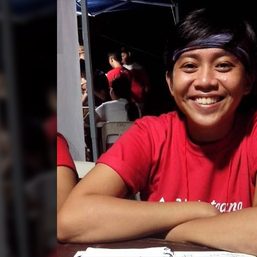

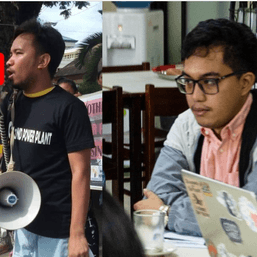
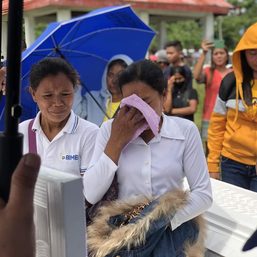
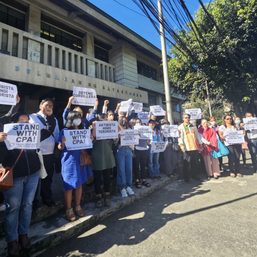
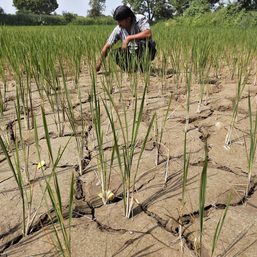
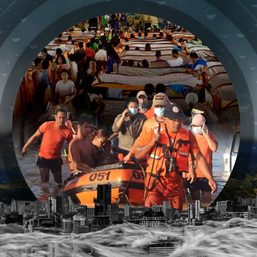
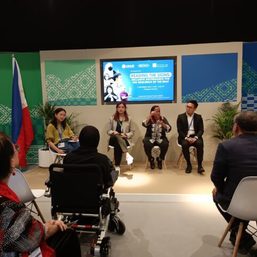
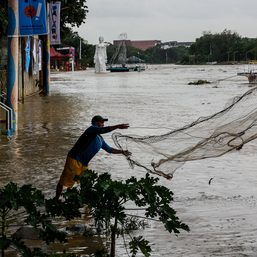
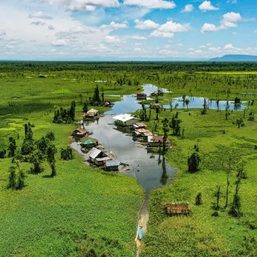


![[Time Trowel] Evolution and the sneakiness of COVID](https://www.rappler.com/tachyon/2024/02/tl-evolution-covid.jpg?resize=257%2C257&crop=455px%2C0px%2C1080px%2C1080px)


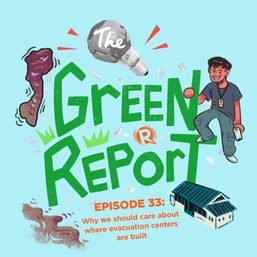
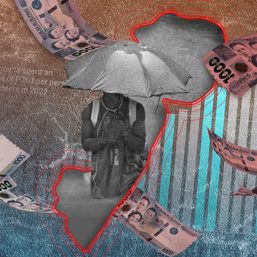
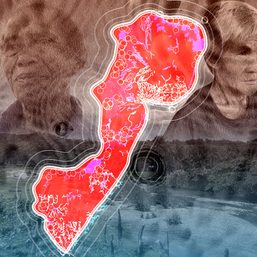

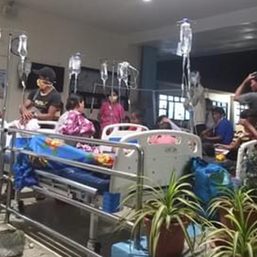
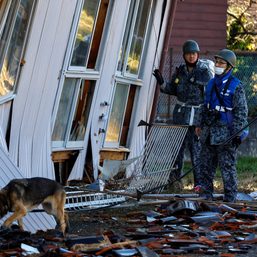
![[ANALYSIS] Lessons in resilience from Japan’s New Year’s Day earthquake](https://www.rappler.com/tachyon/2024/01/TL-japan-earthquake-warning-system-jan-3-2024.jpg?resize=257%2C257&crop_strategy=attention)
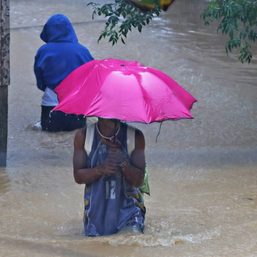

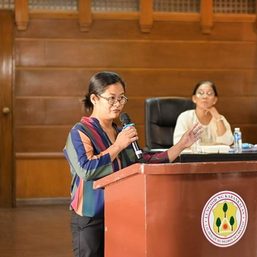
There are no comments yet. Add your comment to start the conversation.